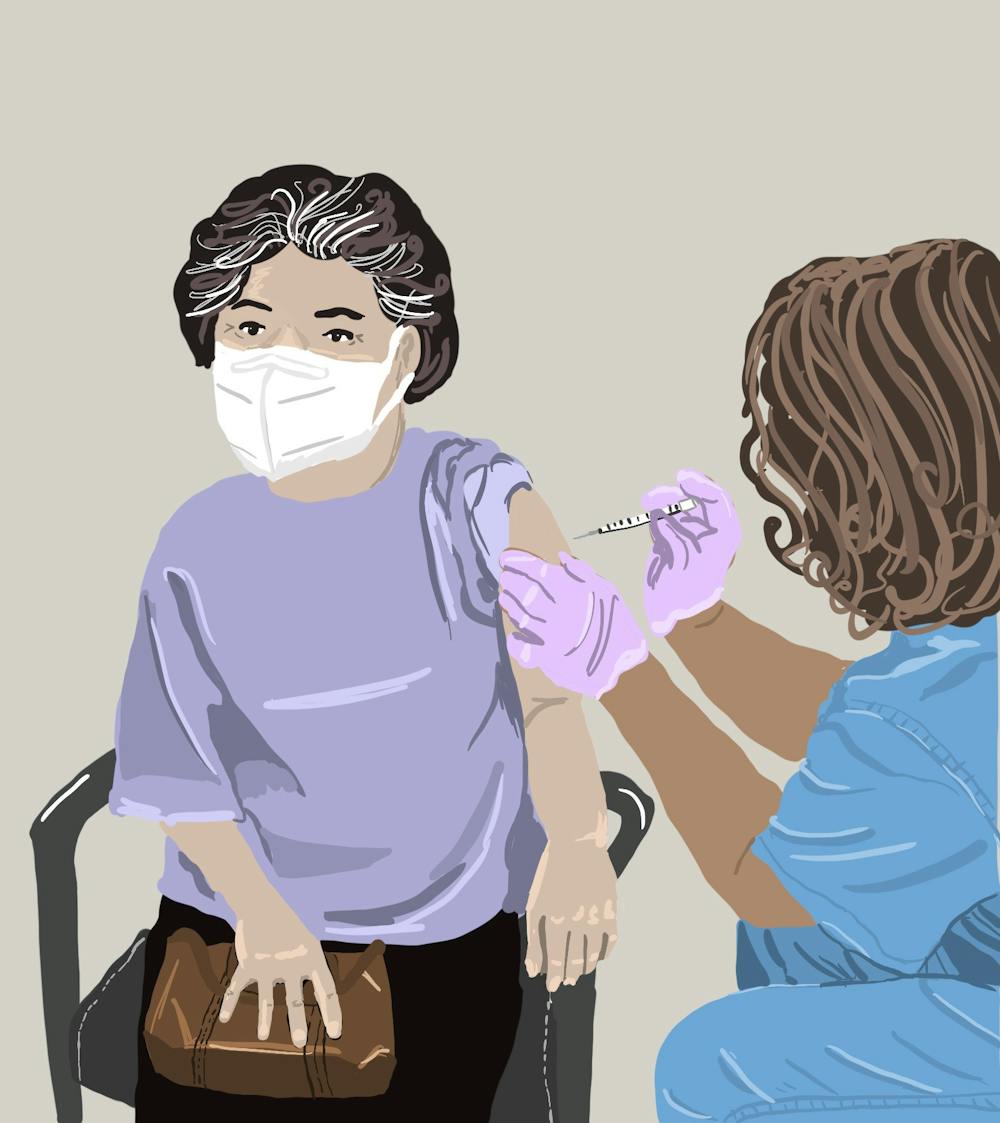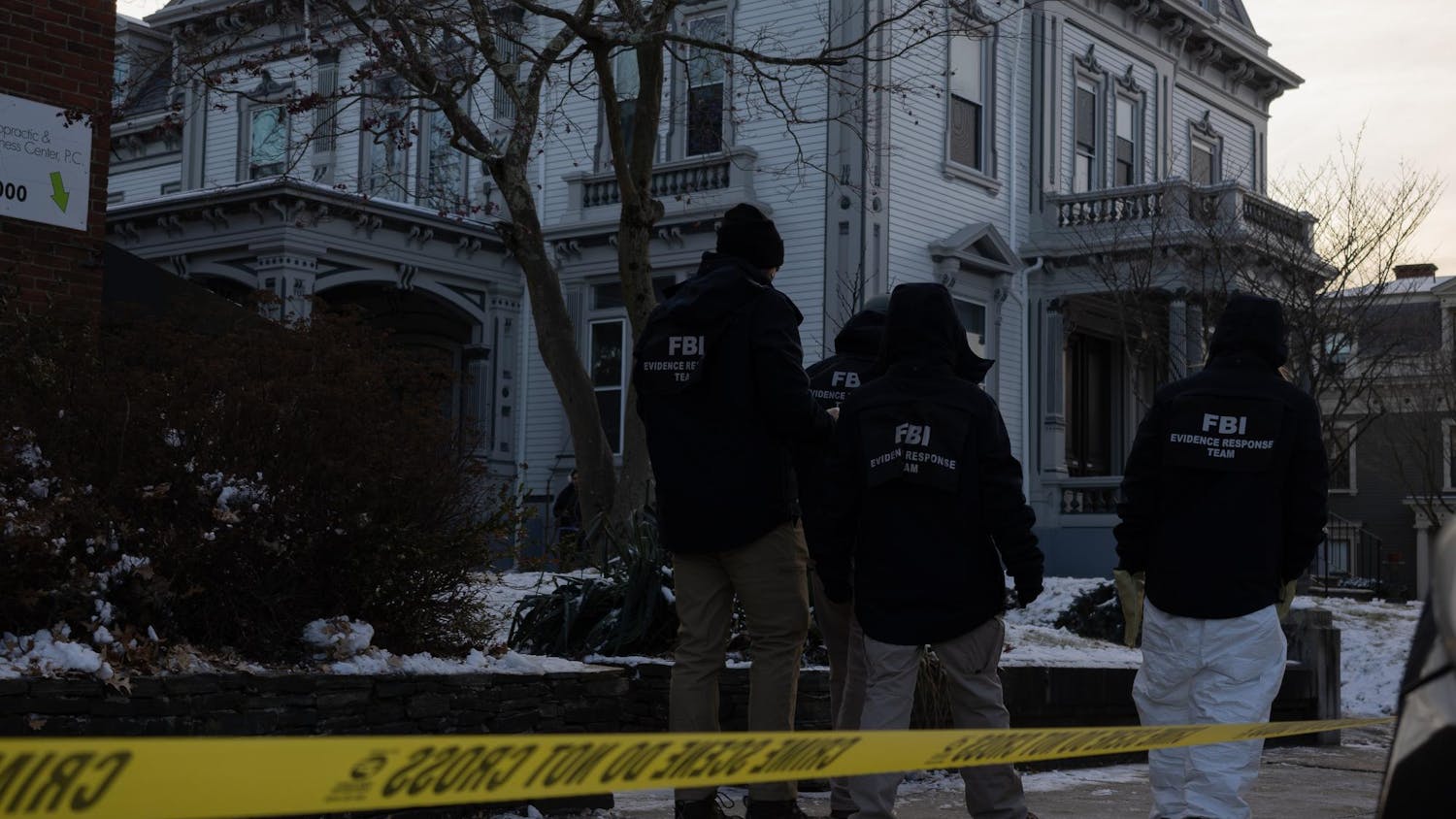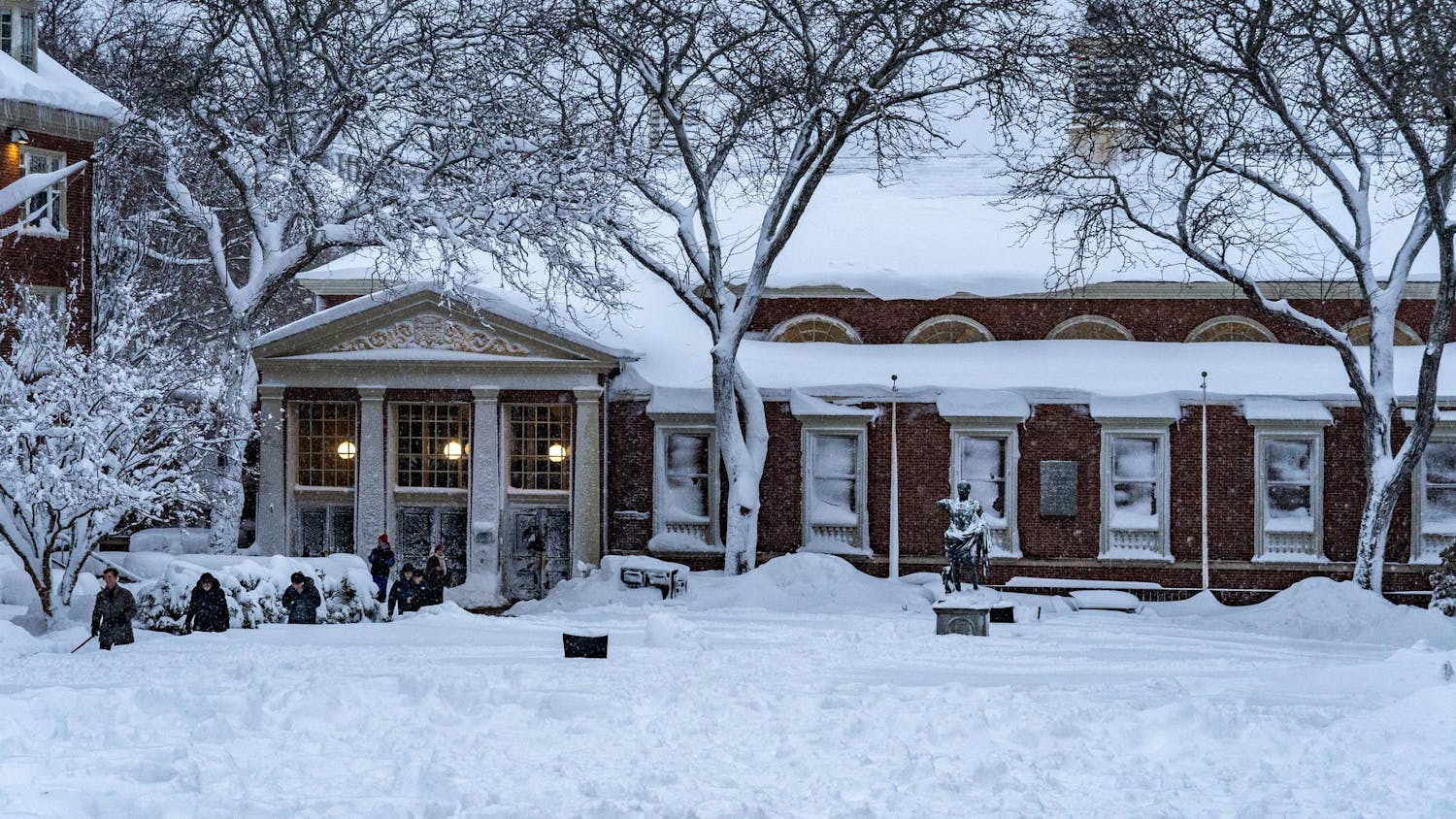University researchers received a $4.9 million grant from the U.S. Centers for Disease Control and Prevention to study the effectiveness of the COVID-19 vaccine in protecting the nursing home population.
“COVID has been a massive public health crisis within the nursing homes. Nursing home staff and residents have accounted for about 40% of all COVID deaths in the U.S.,” said Assistant Professor of Health Services, Policy and Practice Elizabeth White, who is also the co-director of the study.
White added that although the CDC has shown that the Johnson and Johnson, Pfizer and Moderna COVID-19 vaccines have high success rates during their clinical trials, these trials “largely excluded” the nursing home population — made up mostly of elderly individuals with comorbidities.
“We don’t know the actual effectiveness of the vaccine in” the nursing home population, said Eleftherios Mylonakis, an MD professor of infectious disease whose lab is involved in processing the data for this study. “Combined with the disproportionate effect (COVID-19) has had on this population, this study is very important.”
The prospective study will track the immunity of nursing home residents to COVID-19 over the course of two years, said Professor David Canaday at Case Western Reserve School of Medicine. By measuring levels of COVID-19 antibodies — protective proteins produced by the immune system in response to vaccination — in the blood of nursing home patients over time, researchers can determine how long it takes for immunity to COVID-19 to wear off, he added.
Researchers plan to enroll between 800 and 1,000 nursing home residents in Ohio, New Jersey and Rhode Island and measure antibody levels every six months.
This work will expand upon a previous study published last August by Canaday and Stephen Gravenstein, professor of geriatric medicine and co-director of this study. The earlier study found a significant drop in COVID-19 antibody levels in subjects of all ages approximately six months after receiving the second dose of the Pfizer vaccine. This was especially detrimental to the immune response of the elderly subjects who had lower levels of antibody to begin with.
“We know that immunity (from) many vaccines wanes with time for various reasons,” Rami Kantor, a co-author on the previous paper, wrote in an email to The Herald. “Immunosenescence, the process of immune dysfunction that occurs with age, is a known phenomenon that represents this process … COVID-19 is a new pandemic and vaccines for it have only been relatively recently introduced. Whether and to what extent and at what pace do the responses to COVID-19 vaccines wane with time in the elderly population … are unknown.”
Immunosenescence “is not unique to COVID-19,” said Assistant Professor of Molecular Microbiology and Immunology Lalit Beura, who teaches BIOL 1600: “Development of Vaccines to Infectious Diseases.” It “is also seen in other vaccines including influenza and pneumococcus.” He added that for these vaccines, “it’s very important to track the immune response so that alternative approaches can be put into place to improve immune response,” including vaccine boosters.
Researchers hope the study results will “inform decisions around the ongoing need for boosters,” White said.
By answering questions — such as “how effective is the booster? How soon do you have to boost? How long is the immunity going to hold up after boosting?” — findings will help inform clinical decisions on “how to deploy the vaccines for optimal protection,” Canaday said.
The researchers emphasized the importance of understanding immunity in the nursing home population in order to better protect them.
“COVID-19 has had an immense effect on the elderly population … It is a horrible situation,” Mylonakis said, referring to not only the mortality rate but also the isolation that the nursing home population had to undergo due to quarantine precautions. “Families were impacted quite significantly. The human element of what happened should not be lost in the minds of anyone.”





